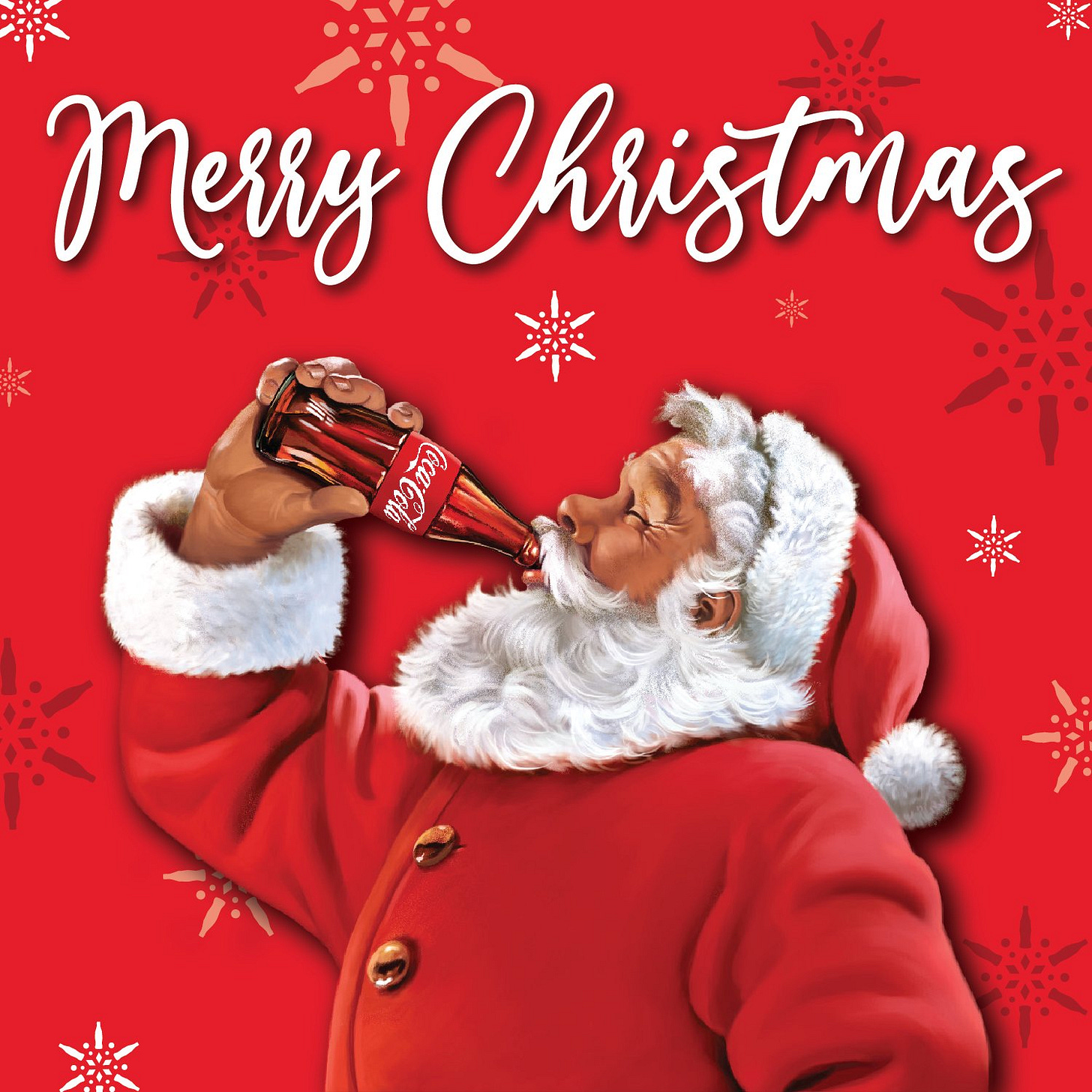The "Happy Holidays" thing really is kind of lame, isn't it?
Reflections on the most perennial of the culture wars
I’ve got to be honest, in most cases it feels like most people don’t even really say “Happy Holidays!” anymore. I think the reflexive public impulse toward complete and total ideological neutrality has gotten to the point that people are nervous to utter even that. Nevertheless, in the rare cases where people still offer a seasonal greeting of some kind, it’s invariably “Happy Holidays!” And of course all the TV commercials and YouTube ads and magazine adverts say “holidays” almost exclusively. And I always kind of chuckle over it, because it does feel pretty lame, doesn’t it?
But why does it feel so lame? I think it’s because because the term “Happy Holidays” is pretty obviously just a placeholder for “Merry Christmas.” It’s meant to be a more ecumenical and thoughtful way to mark a season of holy days, but in practice we all know, every one of us, that it simply means “Merry Christmas.”
How do we know that? Because the rest of the year is absolutely rife with holy days—with holidays̛—and yet nobody ever says “Happy Holidays!” during those times. I mean, between late February and mid-April of 2023 various members of our society will mark Ash Wednesday, Lent, Purim, Mid-Sha'ban, Hola Mohalla, Ramadan, Passover—there’s even more in there if you look. Late winter and early spring are absolutely chock full of holidays from major religions; arguably at no other point in the Gregorian calendar do you see such a stretch of potently holy days for so many people. Do you know what we orthodox Catholics do during Lent? We just go nuts, it’s a season of atonement so acute and so relentless that we created another holiday out of whole cloth just prior to it in order to fit in one last mega-party before the deprivation begins. These are holidays—holy days, the days that order one’s body and soul toward holiness. It’s the total package!
And yet nobody ever says that familiar phrase during that season, or any of the other stretches of weeks or months of religious observances that mark the rest of the year. Why not? Because “Happy Holidays” isn’t meant to mark actual holidays, it’s meant to mark a particular portion of the year when a particular holiday—Christmas—is very publicly manifest. That’s what everybody means when they say it. There’s not really any sense in claiming that it’s a stab at ecumenicism when it really obviously only applies to one particular holiday at one time of the year.
Consider a hypothetical: Imagine someone asked you to not say anything about his birthday because he didn’t want to think about getting old. You comply, but then every day on his birthday you said to him: “Happy Special Annual Day!” It would be, you know, pretty obvious what was going on, right? He’d be right to be irritated by that.
So if this is the case, why not just say “Merry Christmas?” It’s not that much of a stretch. I’m sorry to say it, but I’d guess that probably the majority of people who celebrate Christmas do so in a secular, nonreligious way. So it isn’t even as if wishing someone “Merry Christmas” in that context is all that offensive, any more than it’s offensive to wish someone a happy Memorial Day. For most people, Christmas is arguably just another notable day of the year when you kinda do something fun. Why worry about offending anyone over it?
I suppose it’s because we’ve all been sort of trained to neuter ourselves of these sorts of meaningful commitments to big ideas. That is very much the general impulse these days. That might seem like an overkill analysis, but consider: How many times do you hear people describe something done by “the universe” when what they obviously mean is “God?” Why do you think so many people “identify” as something these days rather than just being something? Nobody wants to bother anybody else with the danger of a concrete proposal; it’s much safer and less frightening to be weirdly timid about it. But man, it is lame, no question about it. On that note, of course, naturally, you knew it was coming: Merry Christmas!



